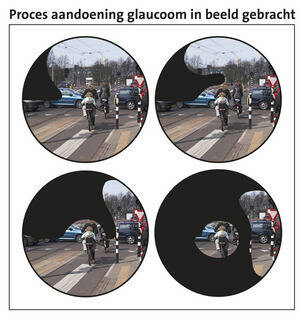Glaucoma, often described as the ‘silent thief of vision,’ is a stealthy eye condition that gradually affects vision without clear symptoms in the early stages. This condition, which causes damage to the optic nerve, can lead to permanent vision loss if not diagnosed and treated in time. In this post, we will delve deeper into what glaucoma is, the risk factors, symptoms, diagnosis, and treatment.

What is Glaucoma?
Risk Factors for Glaucoma
Although glaucoma can occur in anyone, there are certain risk factors that can increase the likelihood of developing it:
- Age: The risk of glaucoma increases with age, especially after the age of 40.
- Family History: People with a family history of glaucoma are at higher risk.
- Race: African Americans, Asians, and Latinos have a higher risk of certain types of glaucoma.
- Eye Pressure: Increased eye pressure is a major risk factor, but glaucoma can also occur with normal eye pressure.
- Eye Injury or Surgery: Eye injuries or surgical procedures can increase the risk of glaucoma. Other
- Medical Conditions: Diabetes and high blood pressure can also raise the risk of glaucoma.
Symptoms of Glaucoma

In the early stages, glaucoma rarely causes noticeable symptoms. As the condition progresses, the following signs may occur:
- Gradual Loss of Vision: The visual field gradually narrows, often going unnoticed.
- Eye Pain and Headache: Some people experience eye pain or headaches, especially in acute angle-closure glaucoma.
- Nausea and Vomiting: Nausea and vomiting can occur with acute angle-closure glaucoma.
- Blurred Vision: Vision may become blurry, even with corrective lenses
Diagnosis and eye examination
Regelmatige oogonderzoeken zijn cruciaal voor het vroegtijdig opsporen van glaucoom, zelfs als er geen symptomen zijn. Tijdens een oogonderzoek kan een optometrist de oogdruk meten, de oogzenuw beoordelen en het gezichtsveld testen. Geavanceerde beeldvormende tests zoals een OCT-scan kunnen ook worden gebruikt om de structuren van het oog in detail te bekijken.
Treatment of Glaucoma
Although glaucoma cannot be completely cured, there are effective treatment methods to prevent further damage:
- Eye Drops: Medicated eye drops are often prescribed to lower eye pressure.
- Oral Medication: In some cases, oral medications may be prescribed to regulate eye pressure.
- Laser Therapy: Laser treatments, such as trabeculoplasty or iridotomy, can reduce eye pressure.
- Surgery: In cases where other treatments are not effective, surgery may be considered to control eye pressure.
Prevention and Awareness
Since glaucoma often sneaks up on you with no warning signs, it’s crucial to have regular eye check-ups. This is especially important if you have risk factors. Early detection and treatment can save your sight.
At Zeker Zicht Optometry Practice, we’re dedicated to helping you keep your eyes healthy. Book an eye exam today and let us help you protect your vision. Your eyes deserve the best! Call now to schedule an appointment.


